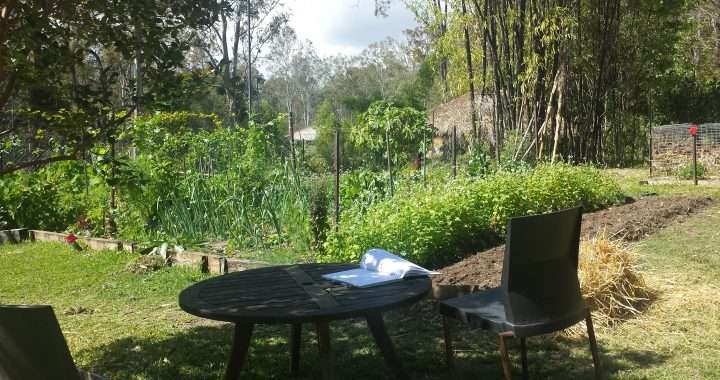
Climate change adaptation in the vegetable garden
Author : My Food Garden
Climate change adaptation is being forced upon food gardeners and farmers that grow in the open air. One could become negative about this as its yet another challenge to get healthy crops. But like all things in life that require us to work outside of the box, there is an opportunity lurking within the challenge.
Most experienced food gardeners and farmers know that working in tune with their local climate is one of most important success factors with cropping. Climate change has crept up on us and if your work or leisure is not dependent each day on the climate, its quite easy to ignore the subtle changes occurring and the need for climate change adaptation in the food garden.
I have worked in the food garden now for about 40 years and quite intensively over the last 20 years with biodynamic methods and greater levels of cropping. In that time I have certainly noticed the timing crops in the food garden and the flowering and fruiting times on fruit trees is changing.
Changing climate has in general brought greater extreme’s of temperatures with warmer and longer summers and often more extreme cold in winter, but on average, higher temperatures throughout the year. For many gardeners, figuring out when its right to plant vegetables is based on one or more of the following:
- What they have always done – This is reliable so long as it has worked in the past and been recorded objectively, but climate change shakes up this picture, it demands adaption.
- Planting calendars – Most planting calendars use very broad zones for recommendations which do not account for local temperature variances. These zones are based on climate definitions (such as temperate, subtropical, tropical, arid, cool temperate) which may be up to 100 years old. So with temperatures changing, the zones are becoming more inaccurate each year.
- Advice from a nursery – Seedlings are often grown in temperature controlled environments and may come from thousands of kms away, so it very possible they are not in season for your local climate.
- Advice from local experienced growers – This is perhaps the most reliable so long as those growers also demonstrate climate change adaptation in their crop management
Vegetables are very sensitive to temperatures at planting. If it is hotter earlier or later in the season, there are many crops you could get underway which you would not normally grow at that time and because of extended warm periods you could be staging your crops for much greater production. There may be crops that you thought would not grow at all, but are actually now very suitable for your climate.
In a changing climate, the biggest opportunities for a healthy and productive food garden are:
- Extending your cropping time due to more heat and by becoming more aware of protecting your plants from high heat and frost
- Planting new crops that were not previously suited to your climate
- Reducing the potential for crop loss by getting more accurate with your planting times and protecting your crops when you know an extreme of weather is coming
Every garden space is slightly different and you can create micro-climates to reduce temperature, protect crops from hottest sun times during the day, gain more wind protection, have warm walls for the cooler season and use tactical planting in the hot season to create shade. The quality of your soil is also put to the test. If it is full of life, it will provide vitality to your food garden enabling plants to better cope with temperature extreme’s.
I do feel that the most important thing you can do with climate change adaptation in the food garden is to be more observant. Once you observe what is really happening, rather than being stuck with old assumptions and then start to experiment, you will create a well of wisdom and whole new set of crops to work with during the year.
Come along to one of our Workshops or talk to us about our Coaching service.
Happy climate change adaptation
Authored by Peter Kearney – www.beta.myfoodgarden.com.au

